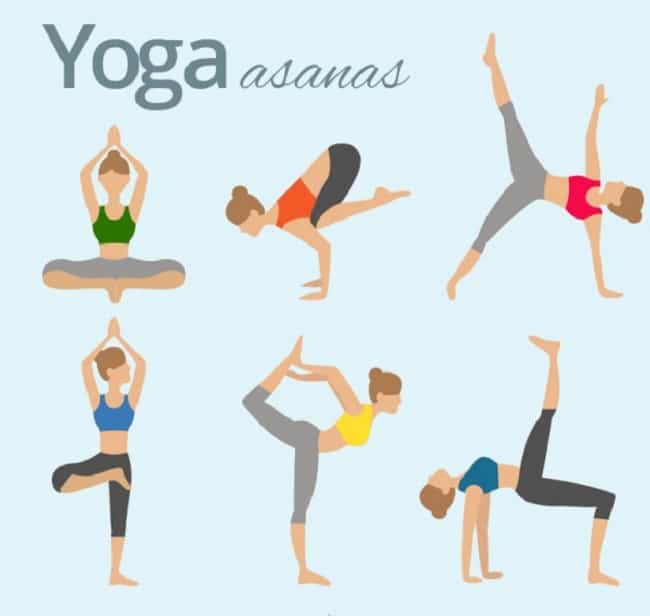Page Contents
by Bipin Baloni
The Yoga-Brain-Addiction correlation and corresponding researches have been taking the rounds for quite some time now. These studies are rolling in steadily as the world progresses and experiments being done to help people break-free.
Scientists are conducting a comparative study between the effects of modern as well as holistic approaches to help people shun an addiction or a bad habit. The most popular protocol that has captured the attention of these researchers is the art of Yoga & meditation.
Skeptics, on the other hand, are throwing curveballs saying that changing few brain cells with these holistic approaches may or may not alter the “me” centers of the brain.
Therefore, keeping the balance intact here, there have been few facts that solidified that Yoga can actually help people control or completely let go off addictions and bad habits.
-
Cases of Mastectomy
Mastectomy is a special medical case wherein a woman is operated to remove all parts of her breast(s).
A study involving 45 such women was conducted in the year 2010 that aimed to discover any possible positive effects of Hatha Yoga on the stress levels, addiction to cigarettes, and the treatment phase.
The researchers did an Anxiety Trait Test and a State Test to evaluate the numbers and it was found that a regular Hatha Yoga practice for 9 months decreased the stress levels and helped these women master their smoking addictions.
-
Substance Abuse
According to the National Survey on Drug Use and Health, more than 12 million people comprising mainly individuals aged 12 years and older battled or are battling some kind of drug abuse.
Taking a trail from this unfortunate data, many pieces of research were conducted to check if Yoga can offer some benefit to these people.
The hard work and efforts put into these studies proved that practicing Yoga every day for 6 months to 1 year had great control over perceived stress, possible mood mutilation, willingness to go for substance use, and actual drug addiction.
-
“Monkey Mind”
A study at Yale University discovered a positive impact of mindfulness meditation on the Default Mode Network (DMN), which is a part of the brain that relates to a wandering mind or self-referential thoughts.
In the medical dictionary, this is also referred to as “monkey mind”. The DMN is active or is ‘on’ when the mind jumps from one thought to another and is usually marred by stress and anxiety.
These symptoms often trigger wrong urges in vulnerable individuals and may drag them towards alcoholism, drug abuse or even inclination towards sexual addictions.
The study proved a sturdier efficacy of meditation over these uncontrolled thought patterns and help people dial it down with ease.

-
Change in Cortical Thickness
Another study on Meditation and certain Yogic poses like savasana at Harvard unraveled positive effects on an individual’s mindset and structure of the brain.
Renamed as Mindfulness-Based Stress Reduction (MBSR), this particular study incorporated the practice of meditation on a daily basis into the lives of the selected respondents.
After a period of 8 weeks, it was observed that the thickness of the hippocampus leveled up and the parts of the brain that involves wandering thoughts and negative emotions decreased in brain cell volume.
Moreover, the study also stated that mindfulness meditation improves psychological well-being by activating the blobs in the brain, which means no anxiety and pull towards wrong habits.
-
Relapse Prevention
One of the biggest challenges that rehabilitation centers face is the case of possible addiction relapse.
Once an individual is out of a center, it does not guarantee his life to be an addiction-free one and this is why regular positive interventions are required for pacifying any possibility.
Connecting with this fear, research in collaboration with the American Lung Association pitched to add Yoga as a daily regimen for the individuals who are on and off an addiction at the rehab centers.
A 17-week follow-up brought forth positive results stating that meditation & Yoga decouples an individual from wrong cravings and put them in a state of ease.
-
Withdrawal Symptoms
This study was pertinent to individuals who battle withdrawal symptoms at one point in time in their lives.
This could be a headache due to the removal of caffeine from their diet or exterminating drugs and alcohol from their daily lives.
Not addressing these symptoms in a timely manner can increase the chances of a relapse and go back to the same gunk.
The Journal of Alternative and Complementary Medicine discovered that practicing Yoga techniques (any art or style) encourages the production of Gamma-Aminobutyric Acid (GABA).
This happy chemical helps your brain handle stress with ease and enables a sturdy response system towards the withdrawal symptoms.
Let Yoga & meditation take over for a transformed life!
Author Bio :
Bipin Baloni is a passionate Yogi, Yoga Teacher and a Traveller in India. He organizes 200 hour Yoga Teacher Training in Rishikesh. Bipin Baloni conducts Yoga Teacher Training in India in different cities. He loves writing and reading books related to yoga, health, nature, Himalayas, and Trekking in India.
Website: https://www.rishikulyogshala.org/
